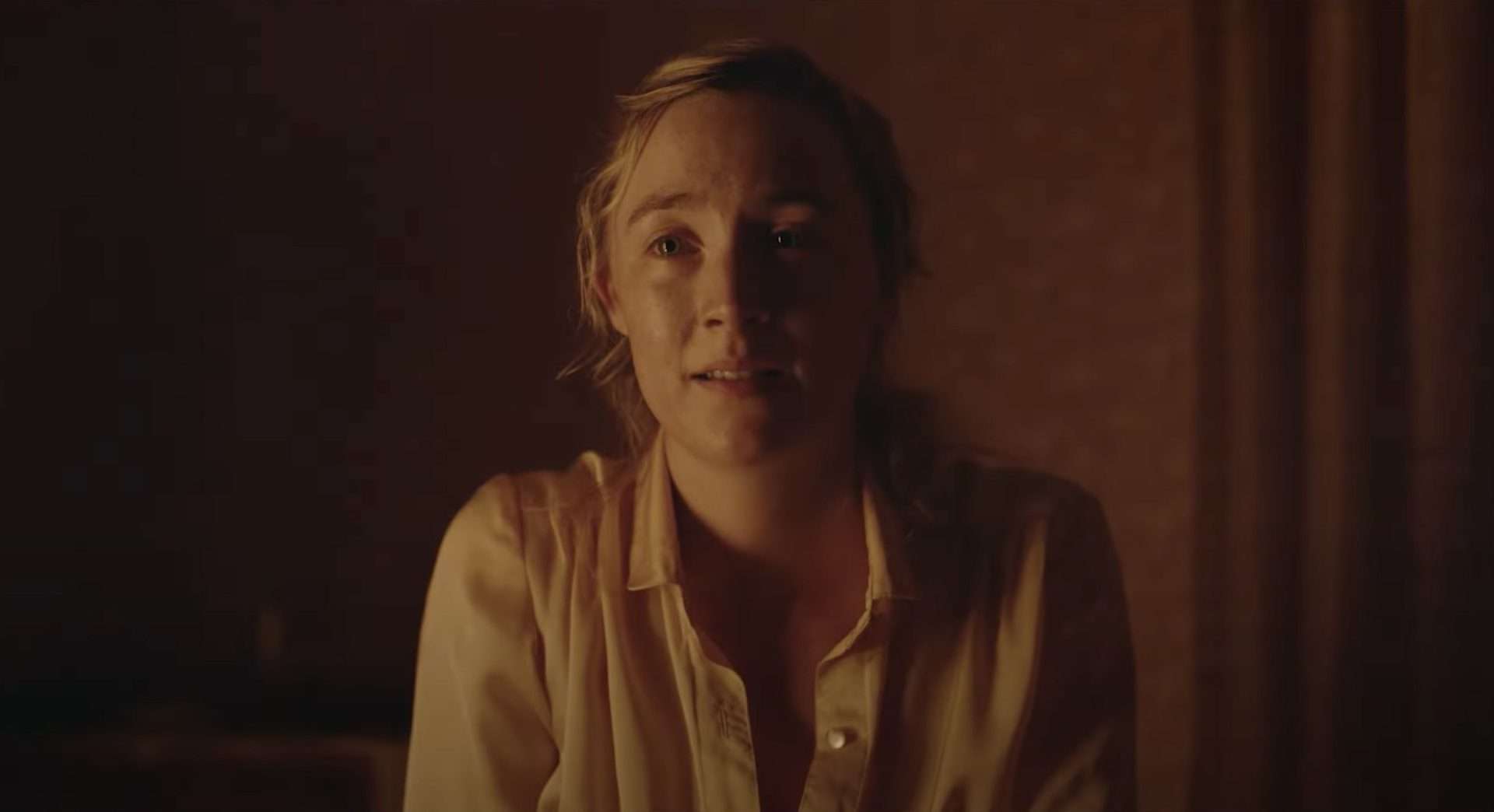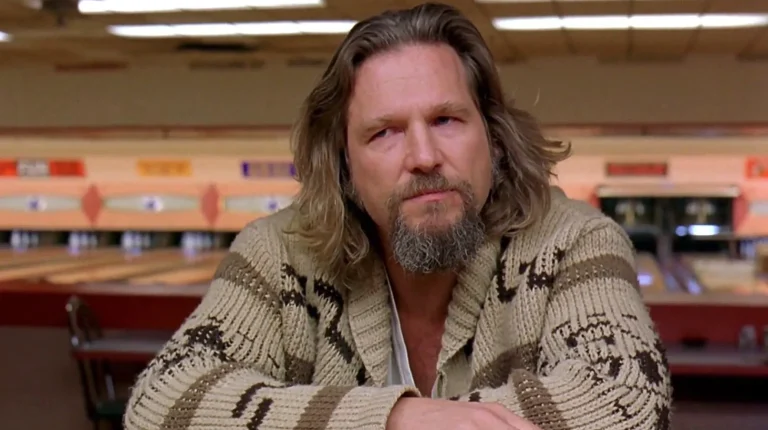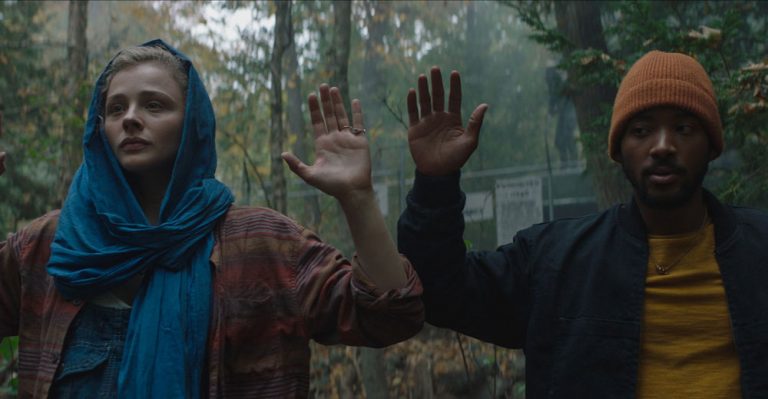These days, it’s common for runtime-related criticisms to be levied at a film. In the age of three-hour blockbusters like “Oppenheimer” and “Killers of the Flower Moon,” filmmakers are taking greater and greater risks when it comes to film length. Now, criticisms about a film being too long can be unmerited, but in some cases, they’re very much warranted. Oftentimes, the films in the latter question aren’t even three hours long. As in the case of the film under discussion in this review, the movie can even be shorter than two hours long. Director Garth Davis’s “Foe” is only an hour and fifty minutes, and they’re a long one-hundred-and-ten minutes.
Davis directs a script co-written by Iain Reid, based on Reid’s novel of the same name. If that latter name sounds familiar, it’s because this isn’t the first of the writer’s novels that has been adapted for the big screen. The novelist’s first book was “I’m Thinking of Ending Things,” adapted to marvelous effect by Charlie Kaufman for Netflix in 2020. While Kaufman imposed many of his aesthetic obsessions on that particular adaptation (resulting in a very personal take on the material), Davis, whose past directorial credits include “Lion“ and “Mary Magdalene,” does not have the same creative footprint.
Neither, it appears, does Reid, whose own conversion does not port the story very well to the cinematic medium. The story follows the married couple Junior (Paul Mescal) and Henrietta (Saoirse Ronan) at some point in the distant future. Climate change has ravaged the world, and humans are moving to a satellite station, a massive installation that orbits around the Earth. On the night we are introduced to our main characters, a knock at the door puts them in a difficult situation. A man named Terrance (Aaron Pierre) introduces himself as a rep for the Outermore Corporation (the company that manages the aforementioned satellite station).
Terrance informs Junior that he has been conscripted in a program that shifts able-bodied individuals to the satellite city. Henrietta, unfortunately, won’t be able to join him. Terrance, an insidious figure with a sinister mustache and an even more sinister British accent, is not very forthcoming when it comes to explanations. The options are to either begin prep for the journey (which could take two years) or… well, it’s unclear exactly what options the couple has. They are essentially being forced to separate.

The couple dawdles for a year in their rustic home, which translates to around three-quarters of an hour in runtime. They apparently rekindle their love in response to the crisis, even though it’s, again, unclear how they’re both so relaxed in their response. We don’t learn much about their characters, even though their initial interactions promise an interesting relationship between the pair – it turns out they’re both just in love with each other for… reasons. That state of boring devotion continues until Reid and Davis finally introduce the premise of their movie.
It turns out Terrance wants to replace Junior with a human substitute, the film’s term for conscious AI machines. This, understandably, adds another wrinkle to the baffling situation that Junior and Henrietta find themselves in. Again, it appears neither of them has a choice in the matter of whether they’d like to introduce a clone of Junior to their relationship. If it’s not already clear, there’s a narrative haze cast over the film’s plot that can only be attributed to two possibilities: either Davis and Reid are completely incompetent storytellers, or there’s a narrative twist that they’re trying to keep plausible.
The whole thing amounts to a misshapen and pretentious sci-fi story centered around marriage and what it takes to love a person again. The main issue here is that Davis and Reid’s script is constantly spinning its wheels in a misguided attempt to maintain a sense of mystery around proceedings. It’s difficult to write about this problem without referring to events that take place deep in the third act, but the problem with Foe is that it’s overlong and misconstructed. Davis wastes so much time trying to disorient his audience that it becomes obvious that he is hiding some revelation about the plot.
You could cut significant sections of this film, and it would result in a more effective experience. At the very least, the implausible reactions of the characters could be made to make some semblance of sense. “Foe” keeps compounding the same plot elements, such as Junior’s unwillingness to leave and Terrance’s creepy insistence that he must until the viewer’s patience wears thin. If the pace were faster, it might not have occurred to you how little sense the story makes and how powerless the cast appears to be. With the pace as glacial as it is, the characters appear to be just idiotic. This kind of ambiguous narrative might have worked in a novel with an unreliable narrator, but it doesn’t work in this cinematic translation.
The terrible dialogue doesn’t help. With lines as ponderous and dense as these, any audience goodwill left over after the banal machinations of the plot was bound to run out. These conversations are so poorly written that even Mescal and Ronan’s considerable talents can’t salvage them (Mescal, in particular, has a monologue in this film that’s embarrassing). It’s a great pity since these two actors are great performers, and their pairing should have been a joy to witness. “Foe” manages to make it a chore.



![Reason (Vivek) [2019]: ‘LIFF’ Review – A Brilliant Discourse on the Pernicious Rise of Religious Extremism in India](https://79468c92.delivery.rocketcdn.me/wp-content/uploads/2019/06/Reason-highonfilms-768x494.jpg)

![The New Girlfriend [2015]: A pyschosexual exploration of Friendship!](https://79468c92.delivery.rocketcdn.me/wp-content/uploads/2016/02/1436307724-The_New_Girlfriend_tickets-768x432.jpg)
![A Spike Lee Joint: Summer of Sam [1999]](https://79468c92.delivery.rocketcdn.me/wp-content/uploads/2018/06/Summer_OF_SAM-768x432.jpg)